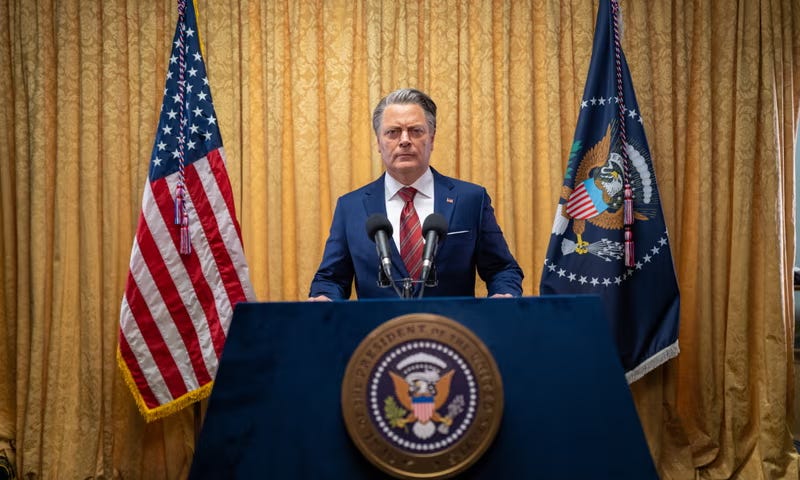'Civil War' Is Wisely Apolitical
Alex Garland tells a universal story instead of succumbing to the politics of the day.
I just published my review of Alex Garland and A24’s new film Civil War over at Forbes. Here’s a bit I wanted to expand upon a little. The thrust of my review is that this really isn’t about a second American civil war so much as it’s about the very real upheaval and horror that any civil war leads to. Garland sets it in the US to drive home that point. This isn’t some war between foreigners in Eastern Europe or Africa. This is civil war at home.
From my review:
We are unmoored throughout the picture. Garland wisely avoids the politics of the day in order to tell a more universal story. There are familiar locations mentioned and visited, from Charlottesville to Washington D.C., but never words like Democrat or Republican, conservative or liberal. From the outset, we are told that this is not exactly our America. After all, in no version of this universe would California and Texas team up to secede from the Union.
What I think is important here is the apolitical nature of this deeply political movie and how it makes the movie more powerful. If that sounds like a contradiction, allow me to explain.
Often we hear things like “Keep your politics out of my video games” or movies or TV or whatever. This is often met with some skepticism or mockery, especially when the game or film or TV series is political in nature. But I think what people generally mean when they say this—whether or not they can express it properly—is that we don’t necessarily want political viewpoints pushed on us in a preachy way even if the story is political. Tell the story first and let the story convey the meaning. That’s why in The Fall Of The House Of Usher I was so annoyed by references to Trump. Same with Season 5 of Fargo. It takes you out of the story for no good reason. The only reason I can think of is that the creators of these shows want to let everyone know where they stand politically.
Garland makes no mention of Trump or political parties in Civil War. He gives no reason for the war itself. He sets up a conflict that has essentially nothing to do with our current-day politics other than in its cautionary nature: Division and strife and corruption could lead us down this terrifying path and this is one way it could all play out. With death and chaos, suicide bombers in the streets of NYC, all-out warfare in the streets of D.C. Murderers unfettered by the rule of law. By avoiding the politics of 2024, Garland is able to tell a universal story about the horrors of war and especially civil war without taking a side. This is a story for everyone, not just liberals, because war impacts us all.
I’d like to see more writers and storytellers in Hollywood take this path more often. Obviously if you’re dealing with a true story surrounding modern events, you can’t avoid being topical. Or if you’re a satire show like South Park that so ingeniously spoofs the here and now. But for the most part, you risk dating your story quite badly if your goal is to gather cultural cachet rather than tell a powerful story. You should go see Civil War in theaters. It’s terrific.





Funny I read a review saying they disliked it for similar reasons, but this movie sounds intriguing to me. I trust Garland with his track record too.
I didn't get my britches in a bunch when Fargo mentioned Trump, but I do like that Garland is capable of letting viewers know his point of view without overtly stating it. The first rule you learn about screenwriting is to scour your pages for on-the-nose dialog. Garland is my favorite director (Annihilation is my favorite movie), and although he isn't perfect, he generally handles nuance pretty well. I think he tends to look at most scenes and see if he can pull things back a little. He's still pointing out things in his previous films that people didn't get. It's actually one of the reasons I think he hasn't really had broad mainstream success yet, but I imagine after Civil War he will be offered a lot more budget, if he ever decides to direct again (for now, he says no). I hope he sticks to what he does best. Moorhead & Benson got lured into the Marvel universe and I think it took away from the amazing stuff they were doing in the indie scene.